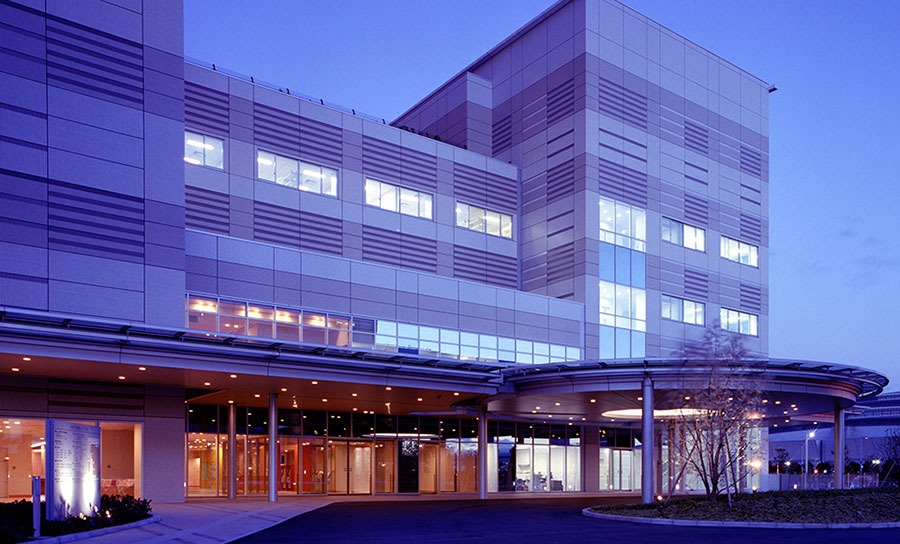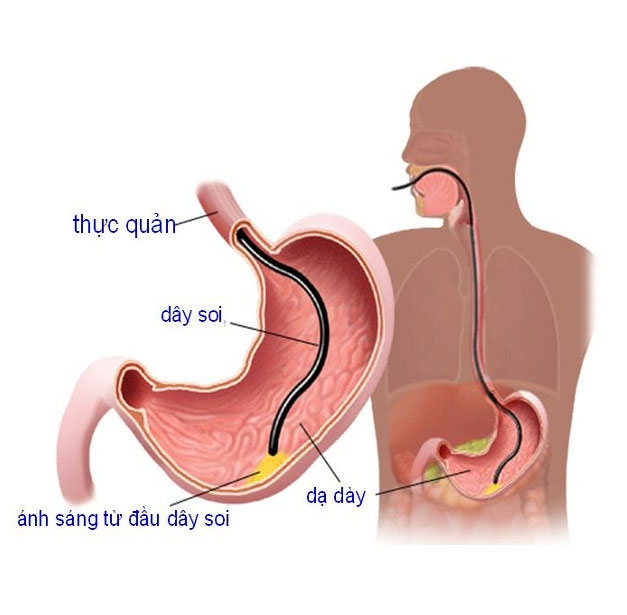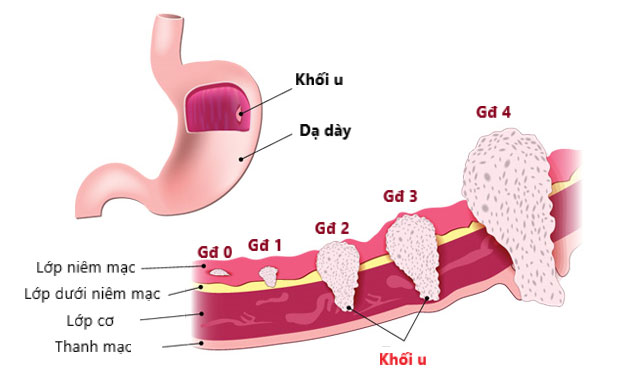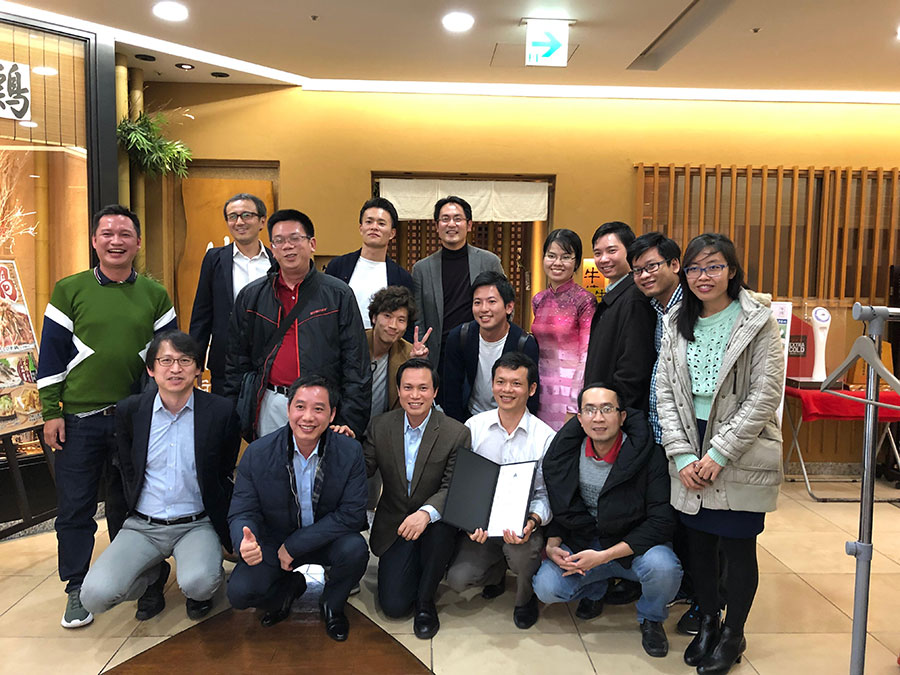According to the statistics from the World Health Organization (WHO), Japan has the most cases of gastric cancer in the world. After years of research and development, the Japanese Foundation for Cancer Research (JFCR) succeeded in detecting and treating early gastric cancer, contributing to the reduction of the mortality rate for patients.
2018 was the first year that FV Hospital, was selected by the JFCR to advise on new techniques in detection and early treatment of gastric cancer diseases such as esophageal, stomach and colorectal cancer. Dr. Phan Van Thai – Department of General, Thoracic & Vascular Surgery and Dr Ngo Van Huy – Gastro – Enterology & Hepatology were both able to take advantage of the opportunity to “study abroad” in Japan from November 4 to December 4, 2018, and laterthese new techniques to FV Hospital.

Japanese Foundation for Cancer Research was established in 1908 in Tokyo
Accuracy diagnostic image contributes to early detection of cancer
In many parts of the world, especially in Vietnam, gastric cancer is often detected in its later stages. In Japan, the identification of abnormal movements of the suspected cancer parts are identified earlier, this is thanks to advanced medical expertise, modern equipment, meticulous working style and respect of accuracy in Japanese culture.
At the JFCR, there is a special department referred to as Cancer Precision Medicine. At the department, Dr. Phan Van Thai and Dr. Ngo Van Huy learnt how to approach patients and measure information in an extremely accurate way. In particular, the doctors were all trained in the same process; therefore, all operations are very synchronous. They made use of the equipment and optimized the procedure of examination and treatment to implement everything according to the “Accuracy” motto. Thus, all diagnosis and treatment for patients achieve maximum safety and efficiency, saving time and effort. Although spending only one month studying at the department, Dr. Phan Van Thai shared his full admiration for the working spirit of Japanese people: “The examination and treatment process at the Japanese Foundation for Cancer Research is very precise and accurate. It’s too hard for me to point out their mistakes.”
“0” stage or “Zero” stage – new definitions of early-stage diagnosis and cancer treatment
The time studying at the JFCR helped the two doctors of FV Hospital learn many useful things. Especially on the methods of diagnosis and early treatment right from the “0” phase by advanced techniques for gastric cancers (esophageal, stomach and colorectal cancers), notably stomach cancer.
In the field of stomach cancer treatment, the JFCR has issued the latest Stomach Cancer Treatment Guidelines 2018 with specific content based on each patient group, detailed by each case and actual treatment. Thanks to these guidelines, doctors can provide accurate diagnosis and appropriate directions for care. Expressing his interest in learning new techniques, Dr. Phan Van Thai shared: “The Japanese Foundation for Cancer Research is a venue for the creation of the Stomach Cancer Treatment Guidelines 2018 for the whole of Japan, with advanced knowledge compared to the rest of the world. For example, the Stomach Cancer Treatment Guidelines were first launched in 2014 in Japan, and were widely applied throughout the country at that time. It was not until 2017 that the English version was launched. Only after that could countries in the world approach and apply this valuable medical document. Now, while many countries are struggling to follow the 2014 guidelines, Japan has applied a new version in 2018 that has just been released by the Japanese Foundation for Cancer Research with important updates.” Sharing the same viewpoint, Dr. Ngo Van Huy said: “Japan is the first
country to propose the Stomach Cancer Early Treatment Guidelines by the method of extraction and removal of the submucosal layer carrying cancer parts through stomach endoscopy.”

Images of stomach endoscopy

Stomach cancer should be diagnosed early and treated from the “0” stage
Overall, stomach cancer at the “0” phase has a specific diagnostic method through a unique endoscopic technique, in order to bring efficient results to patients. Normally, for stomach cancer surgery, the surgeons have difficulty in removing the tumor completely while still ensuring the best physiological function of that part. With the endoscopic technique and modern equipment in the JFCR, doctors are able to easily assess and locate the tumor to exact millimetres(mm). From there, the surgeons can easily determine the position of the tumor, the depth and the width of the cut. This ensures the cancer is safely removed as well as minimizes the removal of healthy tissue to, in the best way, preserve the function of other parts.
Together with doctors from different countries around the world, doctors at FV Hospital had the chance to meet leading experts in cancer treatment such as Doctor Naoki Hiki, Doctor Souya Nunobe, Doctor Junko Fujisaki and Doctor Toshiaki Hirasawa. They are pioneers in endoscopic diagnosis and treatment of stomach cancer in the early 1990s. Learners visited patients, studied each case and directly observed in the surgery room. In addition, the course also had visual videos for doctors to analyze and discuss on a caseby-case basis. Thanks to these approaches, the learning of the new techniques was very straightforward.

Doctors take photos with training certificates at the Japanese Foundation for Cancer Research
The Japanese Foundation for Cancer Research is famous for early diagnosis of cancer from the “0” phase and combination therapy. The strength of this treatment is for the tumor to be removed through endoscopy and/or endoscopic surgery, followed by function preservation surgery. Currently, this technique is only applicable in a few hospitals in Vietnam. After this training course, FV Hospital doctors’ knowledge and expertise have been improved for the examination and treatment of patients at FV.



